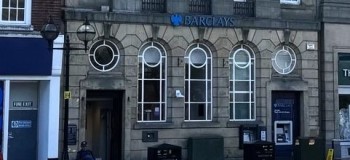03/08/2016
News
Five key elements of Health & Safety Compliance when surveying a building
Compliance with health & safety legislation is vital to ensure a safe workplace. If you’re a commercial landlord or a prospective tenant, you may be surprised to learn that your building surveyor will be putting health & safety issues at the top of their survey checklist. We take a look at the five most important elements they’ll be on the lookout for.
Fire risks
We all know that fire kills but there are some simple steps to help prevent fires starting. Building surveyors will be looking to conduct a Fire Risk Assessment which will firstly identify the potential for a fire to occur and secondly the scale of the consequences of such a fire. The surveyor will look for what preventative measures you have in place in your commercial building which can reduce the risk of fires starting in the first instance. This will comprise identifying fire hazards and anyone at risk, identifying whether fire alarm systems are in place and establishing whether signage is adequate.
Public health
A natural, fibrous rock asbestos was formerly widely used to insulate and fire-proof buildings. In 1999 it was banned after links were established between it and potentially fatal lung diseases. Surveyors must pay particular attention to the suspected presence of asbestos in older buildings due to the serious nature of the threat it poses when inhaled, particularly during removal. Its presence may also have implications for the insurance of commercial buildings.
A building surveyor will also be on the lookout for the potential for Legionnaire’s Disease – a lung infection which is spread through water droplets in air conditioning systems. Of particular concern will be any cooling towers or evaporative condensers, dry/wet cooling systems, and hot and cold water systems.
Energy conservation
It is estimated that commercial premises in the UK are responsible for 10% of the greenhouse gases our country emits. This is not only bad for the planet, but bad for commercial landlords’ and tenants’ bottom line too – there is thought to be the potential to collectively save up to £1.6 billion annually with energy efficient practices. A surveyor will note if a building has sufficient wall and roof insulation, whether the windows are energy efficient and whether the space is adequately air tight, in order to assist in the choices landlords and tenants can make.
Accessibility
The Equality Act 2010 set out the rights of people with disabilities, which include the provision for equal access in places such as shops and cafés, and when renting land and property. Employers are required to make ‘reasonable adjustments’ to ensure that disabled people can access the same services as non-disabled people. Of particular interest to commercial building surveyors will be the provision of access into a building, whether there is specific car parking allocation for disabled people, if the floor surface is suitable, whether there are ramps or handrails, if doors are wide enough to accommodate a person in a wheelchair, etc.
Gas and electric
Whether you’re investing in commercial property directly or are leasing premises from a landlord, the safe and efficient provision of a gas and/or electric supply will be fundamental to your business. A surveyor will, therefore, establish whether such services are provided to the premises.
The professional body for commercial building surveyors, RICS (The Royal Institution of Chartered Surveyors) takes Health & Safety very seriously, both for its members and for the customers they serve. The rules and regulations are there to ensure the safety and well-being of everyone who deals with commercial property, in whatever respect. If you need guidance or advice on any aspect of a commercial building survey, get in touch with one of our professional and highly-qualified RICS members.




